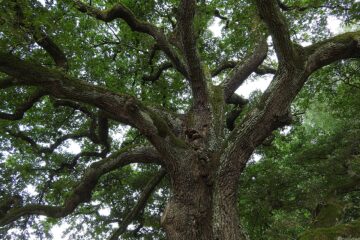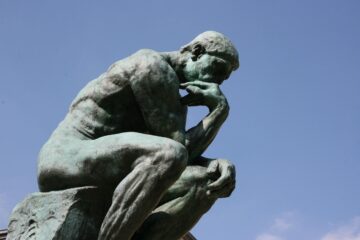On Easter Sunday in 2022, I felt the urge—I believe it was spiritual—to read through all the Old Testament books of the Bible. The urging I had was “read slowly,” which is not hard for me. But also, to comprehend the stories of the Bible and how they relate to me and the larger family of humanity.
As a Christian, I subscribe to the view that the New Testament—the four Gospels, Matthew, Mark, Luke, and John, and the numerous Apostolic writings and letters, tell the story of how God fulfilled his promise to mankind, particularly His plan for salvation for sinners. That’s me. That’s you. That’s all of us whether we subscribe to that view or not.
But I was moved to read the Old Testament—slowly and carefully—because it is so richly referenced in the New Testament. The Old Testament accounts should not be touched on lightly. You know, the “That was then, this is now” thinking. Nor should we see God in the Old Testament as a “God of judgment,” but in the New Testament, as the “God of mercy.” In my reading, and in the teachings I have followed, such a dichotomy is dead wrong. The God of both the Old Testament and the New is a God of mercy, love, and righteousness.
So, I began walking through the Old Testament—slowly and a chapter a day—to learn and understand more carefully the remarkable connection God has had with mankind since the beginning. As, “In the beginning God created the heavens and the earth.” A good place to start. At the beginning. And this journey has opened my eyes to several things.
First, if you want to see and understand who you really are, read the Old Testament. The stories of mankind, the nature, the heroics, the compromises, the character flaws. They are particularly numerous: the hedonistic tendencies, the deceit, the cruelty, the recrimination, the hatred, the chicanery, the unfaithfulness, and yes, the pride: it’s all there, abundantly. Indeed, when you read the Old Testament, you are reading about you, not just others, but your own habits, inclinations, behaviors, shortcomings, temptations, and yes, sin. You know, that little three letter word no one likes to talk about. Some consider it an antiquated notion designed to throw a wet blanket on fun. No, it’s not about being a killjoy. But rather the pathway to death.
Reading the Old Testament made me feel as if I was holding up a mirror and staring myself in the face. At times, I didn’t want to continue. Too much bad stuff. And after all, I’m really not THAT bad, right? Wrong. I am. You too. Even if you don’t think so. For me, the Old Testament was a wakeup call to crawl out of the bed of my habits and look at myself in the mirror. It isn’t pretty even on a good day. But when I consider my nature, indeed the nature of mankind, the Old Testament tells me who I am.
The New Testament, however, tells me who I can be. But there’s a catch. I can be a new creation, but I can’t make myself that new creation. That is found in God’s plan of salvation.
That’s another thing about the New Testament that comes racing home as you read it. In His ministry, Jesus often quoted authoritatively from Old Testament scripture. You see this repeatedly in the Gospel accounts. Why? Because as Christians believe, the New Testament is very much a fulfillment of God’s promise of salvation for all of us. As I read the accounts of old, including the many Prophets, I was struck by how Jesus used their stories and accounts to show us the way forward. That’s not a new understanding on my part. I have known that for years. But in this most recent excursion through the old scriptures, I have slowed down enough to engage in what God did in preparation for taking human form—fully man, fully God—and coming into the world where we all exist in all our “mess.”
The last book in the New Testament is titled “Revelation.” Saint John was inspired to write it. But in slowing down and reading the Old Testament account of God’s relationship with men and women, children, nature, and things good and bad, I have been taken with how much of a revelation that also can be. I have gotten a good look at myself and what to do about it.
Make no mistake. I am a sinner. I struggle a lot. My nature reflects the reality that we live in a fallen world and need a savior to deal with that and us. We can’t do it on our own. The “doing” was done on the cross.



0 Comments